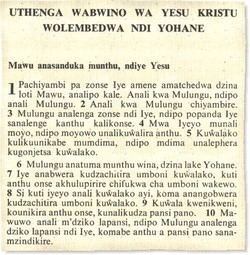 Source: worldscriptures.org
Source: worldscriptures.org
Jesus Christ is Head of The Church.
The Church, as part of the Universal Church, wherein the Lord Jesus Christ has appointed a Government in the hands of Church office-bearers,
receives from Him, its divine King and Head, and from Him alone, the right and power subject to no civil authority to legislate, and to
adjudicate finally, in all matters of doctrine, worship, government, and discipline in the Church, including the right to determine all
questions concerning membership of its Courts, and the mode of election of its office bearers.
All power in heaven and earth is given to Jesus Christ by Almighty God, who raised Christ from the dead and set Him above all rule and
authority, all power and dominion, and every name that is named, not only in this age but also in that which is to come. God has put all
things under the Lordship of Jesus Christ and has made Christ Head of the Church, which is his body.